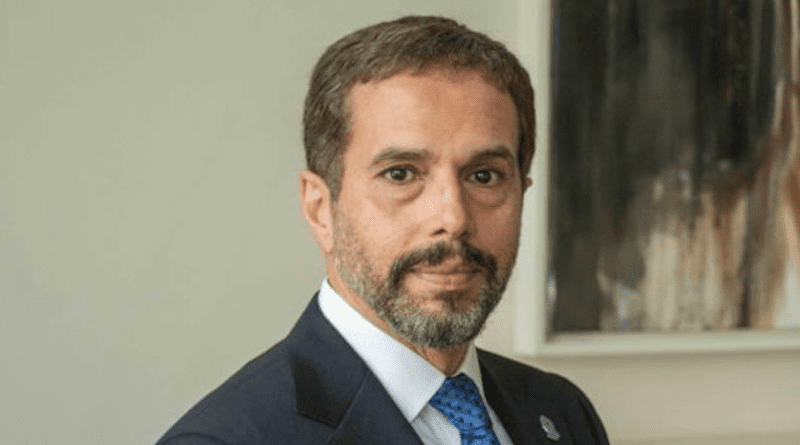Long Live The King – OpEd
The 71st anniversary of Libyan independence should give pause to careful observers of international events. Libya has a unique opportunity to demonstrate an authentic path forward beyond the violence and predation of its civil wars. That opportunity entails a return to the monarchy – a monarchy under Libya’s only legitimate king, and the only credible actor that can begin to heal Libya’s political and social wounds.
National days are odd occasions in the Arab World. More often than not, they mark an ideologically sacrosanct moment in pseudo-nationalist history, rather than a legitimately universal occasion for the political unit. Egypt has two “national days”, one to celebrate the 1952 coup, the other to commemorate the 2011 revolution against Mubarak. The Saudi National Day celebrates the Kingdom’s formal naming in 1932, the Emirati National Day the accession of the final Emirate into the federation. Syria’s national day equivalent, “Evacuation Day”, marks the withdrawal of the last French forces in 1946, while Iraq has multiple competing national days that mark decolonisation, Saddam’s overthrow, and the creation of the Iraqi Republic.
Libya’s Independence Day is, however, rather distinct from those equivalent days in other Arab regimes. Libya is not an example of post-colonial detritus, the creation of externally-imposed lines on an externally-constructed map. It is instead a deeply historical entity, one forged by a single family, the Senussi, over nearly two centuries of struggle. Libya’s first King – and by any measure of international legitimacy, its last indisputably recognised legitimate ruler – Idris al-Senussi, was radically different than any of his Middle Eastern counterparts. He was neither a tribal ruler like many in the broader region,, nor an installed Western ruler like the Hashemite Faisal II, murdered at 23. Idris was rather an experienced military and political leader who led the organisation that had singlehandedly ensured Libya’s social stability, economic growth, and survival despite its position in the midst of the European colonial powers. The Senussi, a hybrid royal house and a moderate sufi religious order, are the undeniable soul of the Libyan state.
The Senussi’s persisting popularity is well-understood. Which is why political usurpers have sought either to destroy all evidence of the Senussi, for example post the 1969 coup by keeping the Senussi family under house arrest as caged animals for exhibition, eliminating all records, and even staging an elaborate propaganda film, The Lion of the Desert, to undermine the public understanding of the Senussi’s role in the war with Italy. Or, since the 2011 revolution, by deflecting attention away from the Senussi in their attempts to hold on to power to pillage the country’s wealth. Nevertheless, the Senussi monarchy remains resoundingly popular. The average Libyan by and large still remembers Idris al-Senussi as what he was, a just, sensible ruler who was committed to Libyan self-governance.
Libya’s brutal fracture after 2011 stemmed from a lack of clear national coherence. But Libya does have a national identity for re-building unity. What the Arab historian Ibn Khaldun would term assabiyah certainly exists in Libya – although continuous violence has stressed this, there certainly exist a shared culture and community of interests that can sustain a Libyan state. The fact is that there has been little shared political identity since Idris al-Senussi was overthrown in the 1969 coup. If they are to govern themselves, Libyans must acclimate to the institutions of self-governance. As Idris understood, they must have the structures around them within which they can operate and the internal freedom to act within these structures.
The 1951 Libyan Constitution (The Independence Constitution) sought to create exactly this framework. Through it, King Idris established a parliamentary democracy presided over by a constitutional monarch. The Independence Constitution was approved two months prior to Libya’s formal independence, enshrined Libyan civil and political rights, and identified the key co-constituting role of the monarchy and the Libyan people. This is key. The Libyan nation requires the monarch to provide the guardrails of governance so necessary for any legitimate debate, while the monarch represents the Libyan people as a single figure on the international stage.
Why might relatively recent yet still older history matter in this context? Because the Libyan monarchy still exists. Mohammed El Senussi, the son of Hasan al-Senussi – Idris’ designated successor and, for the final months of the monarchy, Libya’s de facto constitutional monarch – has remained engaged in Libyan politics since he came of age. But his speech on this year’s national day is rather different than its previous iterations. It demonstrates his efforts to engage with Libya’s factions and highlights his understanding of the Libyan constitutional system and Libyan political history.
Most critically, it demonstrates the potential for a monarchical solution to Libya’s predicament. Mohammed El Senussi retains the respect of Libya’s multiple factions while remaining above the violence and division that has defined the country since 2011 – in reality, since the 1969 coup. Libyans should be offered the choice to leverage Prince Mohammed’s social, cultural, and political gravitas to, at minimum, reduce the factional tensions within a Libyan polity.
Prince Mohammed clearly understands that it will take years, likely even decades, to heal the wounds within Libyan society. But he must be given the opportunity to heal those wounds. If he is not, it should by now be clear that there will be no realistic route available towards elected government, and no apparent solution to Libya’s political stasis apart from another round of ruinous violence.
Ashraf Boudouara is a political analyst based in Libya. Having been involved in advocating for a constitutional democratic solution for Libya for many years, he currently serves as the chairman of the National Conference for the Return of the Constitutional Monarchy.

